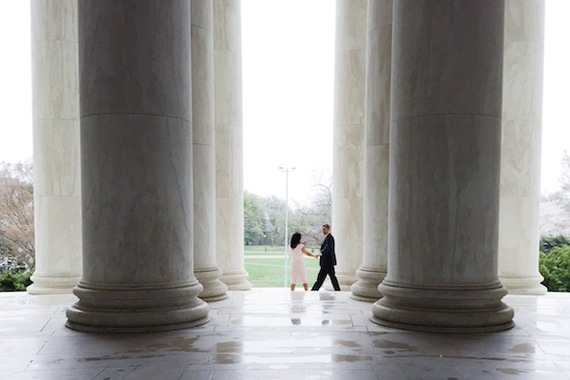This story was originally published on Quarterlette.com
By: Elizabeth Girvan
--
Is there a formula for being taken seriously as a young woman? There certainly shouldn't be.
I came across a story online that criticized Disney for its lack of "complex and strong female characters in its movies," specifically targeting the new adaptation of Cinderella. This concerns me. I thought of the women in the Disney movies that I had grown up watching. I thought of Pocahontas, a Native American princess defending her home and culture from a man that she loves. I thought of Mulan, a Chinese woman who enters into a war in order to save her father's life. I thought of Merida from Brave, an archer who defies Scottish royalty in the name of her independence.
And they say Disney is lacking in complex and strong female characters?
The new Cinderella is a new kind of heroine. She suffers through the deaths of both of her parents and then has to live with the abuses of her stepmother and step-sisters. Cinderella grasps tightly onto the advice given to her by her mother: Have courage and be kind. And that's exactly what she does.
Cinderella's resilience gives her the power to endure cruelty and grief. When she has the chance to finally have her "happily ever after," she embraces her opportunity for happiness and does not wallow in her conditions. Despite all of this, she is unfailingly kind. When given the chance to be cruel in return, she looks her stepmother straight in the eye and says, "I forgive you."
You know, she seems pretty self-sufficient to me.
Cinderella acknowledges the importance of a woman's pursuit of happiness. In a world where she is shown no consideration, Cinderella follows her heart to fall in love with a Prince that cares for her. This sort of storyline takes on criticism due to its celebration of the happily ever after. But, to say that this somehow diminishes the resonance of the rest of the story is not fair.
Loving another person does not take away from your strength as a woman. The fact that Cinderella ends up happily in love with her Prince does nothing to detract from her autonomy. In fact, the story's ending sends a beautiful message. If you are kind, courageous, strong and hardworking, then love and goodness will surround you. What better message could there be?
Disney is not the problem. The problem is that society holds a skewed perception of strong women. We are taught, as women, that we must choose between being a badass and a ball gown enthusiast. Not only is this is wrong, but it is dangerous. To insist that characters like Cinderella are not representations of strong women (simply because they wear glass slippers) is to dismiss femininity as a quality of strength.
This is harmful to "girly girls" everywhere who want to be taken seriously. Further, it is insulting to our entire sex. If we reinforce the idea that frills and self-sufficiency cannot coexist, we perpetuate the myth that femininity is somehow silly and weak.
The truth is that you can be any kind of woman that you want to be and still be a strong woman. You do not have to sort through stereotypes and decide which one to put on each day. You can love Shrek, foster kittens, read Nicholas Sparks books and be a strong woman. You can chug a beer, take swing-dancing lessons, call your mom every Tuesday and be a strong woman. You can be whatever you want to be because you are as strong as you decide you are. Despite what you've been told, you can even be a fairy princess.
Quarterlette.com is an online community where women can openly share their first-person narratives about life in their twenties and thirties. Voted by Forbes as a Top 10 Site for Millennial Women
